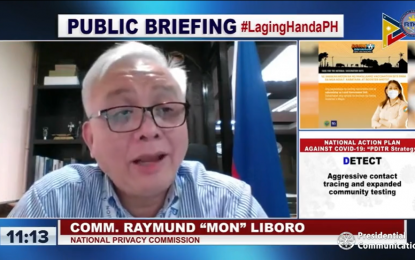
National Privacy Commission (NPC) chief, Raymund Liboro has the public against responding to text messages that offer jobs or rewards that are “too good to be true,” which he said have become more widespread.
In a Laging Handa briefing, Liboro said the sender of such messages must immediately be blocked, noting that interacting with them, especially giving out sensitive information such as identity and bank details, can result in more serious harm.
“This is not only happening in the Philippines but in other countries as well. And this is being done by an organized syndicate, that’s why we must all be careful,” Liboro said.
While such scams have become more popular during the Covid-19 pandemic, he said there is no evidence that mobile numbers and other personal information being used by such scammers come from contact tracing forms.
“They are using large databases for this. These possibly originate from previous breaches or hacks. They also search the dark web),” he pointed out.
To avoid becoming the target of such scams, he warned against giving out personal information to untrusted entities and carefully read the terms or conditions of companies that are asking for such data.
Liboro also warned scammers that unauthorized collecting and processing of personal data are illegal under the Data Privacy Act of 2012 and can be punishable by incarceration for six months to two years or a fine ranging from P500,000 to P2 million.
He called on victims of such scams to reach out to their telecommunications service provider, the NPC, and the National Telecommunications Commission for help.